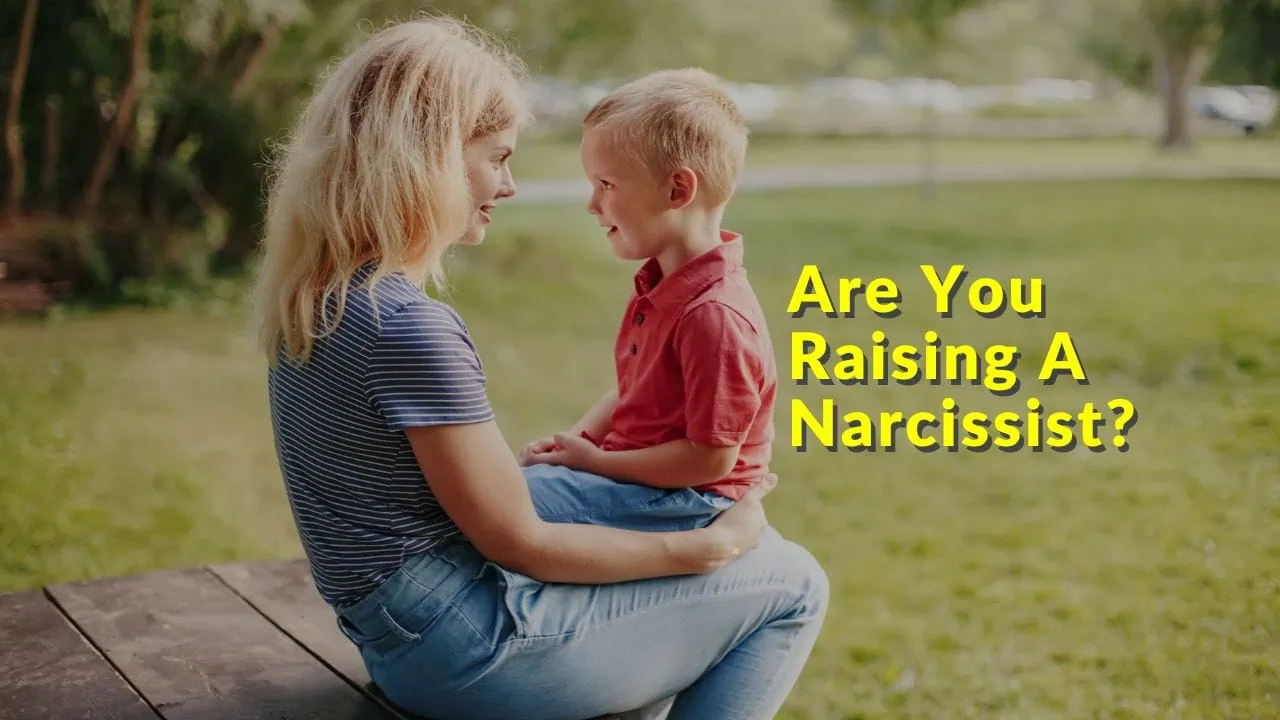Today's Thursday • 5 mins read
— By Dr. Sandip Roy.
Ever wonder why some kids act like they’re the center of the universe?
A new study says parents might be part of the problem—especially if they’re overprotective or treat their kids like they are extra special.
Overprotective parenting—often called “helicopter parenting”—involves
- excessive control over the child’s activities
- shielding children from failures and risks
- over-involvement in their lives
Helicopter parents may be well-intentioned, good parents. But their parenting style may not turn out to be good for their children,
Read on to know why researchers think so, and what it means for you.
Are Parents To Blame For Raising Child Narcissists?
Charlotte van Schie & Heidi Jarman found that overprotective parents may cause children to develop narcissistic traits, such as grandiosity, entitlement, and a lack of empathy.
The Australian research team asked 328 teens and young adults (aged 17-25) about their lives, measuring two kinds of narcissism:
- grandiose narcissism (having an unrealistic sense of superiority, feeling they’re better than everyone),
- vulnerable narcissism (covering up insecurities with a mask of confidence).
The children shared personal experiences about their mothers’ and fathers’ parenting — whether they were overprotective, uncaring, overly praising (called overvaluation), or too lenient. And if they faced abuse or neglect growing up.
What they found were:
- Mothers’ parenting styles had a bigger impact than fathers’ overall.
- Being uncared-for or mistreated did not directly give the children narcissistic traits.
- Overprotecting, overvaluing (treating kids like they’re too special), and being too easy on them were the most likely factors that bred narcissism in young adults.

Let’s break down what the study revealed.
1. Being Overprotective Can Spark Both Types of Narcissism
Overprotection from both mothers and fathers made kids more likely to grow up with narcissistic traits—both the “I’m the best” grandiose kind and the “I’m secretly insecure” vulnerable kind.
Imagine a kid who’s never allowed to mess up because their parents always swoop in to save the day. They might start thinking they’re super special (grandiose), but also feel shaky inside (vulnerable) because they never learned how to handle tough stuff on their own.
2. Treating Kids Like Stars and Being Too Easy Sets the Stage
Here’s where it gets specific:
- Mothers who treated their kids like rock stars without proving it (overvaluation) and let them off easy (leniency) — were linked to both grandiose and vulnerable narcissism in children.
- Fathers who overvalued their children, but were either not caring enough or being too lenient — were linked to grandiose narcissism, where kids think they’re better than everyone.
Overvaluing is like getting a trophy just for showing up. It can trick kids into thinking they are outstanding without giving real effort.
Leniency may mean the child’s false self-view is not corrected. A lenient parent often sets very few rules or expectations for their children. They downplay discipline and structure, which can lead to a lack of self-discipline and boundaries.
3. Not Learning to Stand On Their Own Is A Consequence
The researchers think this kind of parenting stops kids from seeing themselves clearly—like if you’re never told “no,” how do you know your limits?
Overprotection keeps kids from learning from mistakes—like never failing a test—and makes them too dependent on their parents. This messes with their autonomy, which is your ability to stand on your own.
The study says kids raised this way often grow up needing others to tell them they’re great, which is a big part of narcissism—always looking for a thumbs-up from everyone else (external validation).
4. Care and Maltreatment Don’t Always Cause It
The surprising twist: A lack of care and childhood maltreatment alone were not direct risk factors for developing narcissism.
Those things can lead to other problems, like depressive symptoms or anxiety, but they’re not the main reasons for narcissistic traits.
5. How To Help Kids Grow Up Grounded
Parents should care a lot but not hover, set fair rules, and cheer real wins, to help kids grow up grounded, not narcissistic.
What’s wrong is being too nice, not setting boundaries or structure, praising them even when they did not put in any effort, and never letting them figure out a few tough things in life for themselves.
For kids who already have these traits, the researchers suggest therapy can help. By talking about how their parents’ habits shaped them, they can learn to be more independent and see themselves more realistically, which can make their friendships and mental health way better.
So, in summary, young adults are more likely to turn narcissistic when parents—especially mothers—are overprotective, treat the kids as too special, and are too lenient.

What do you think—does this sound like anyone you know?
Final Words
Being with a narcissist is often worse than being alone. They constantly try to prove their higher value and greater ability.
Now we know that parenting styles might be the reason some children grow up with unrealistic ideas about themselves and pick up narcissistic traits.
This insight can guide experts to design childhood programs that teach parents how to adjust their ways, helping kids build a healthier view of themselves.
√ Also Read: How To Help Your Child Cope With Stress?
√ Please spread the word if you found this helpful.
» You deserve happiness! Choosing therapy could be your best decision.
...
• Disclosure: Buying via our links earns us a small commission.